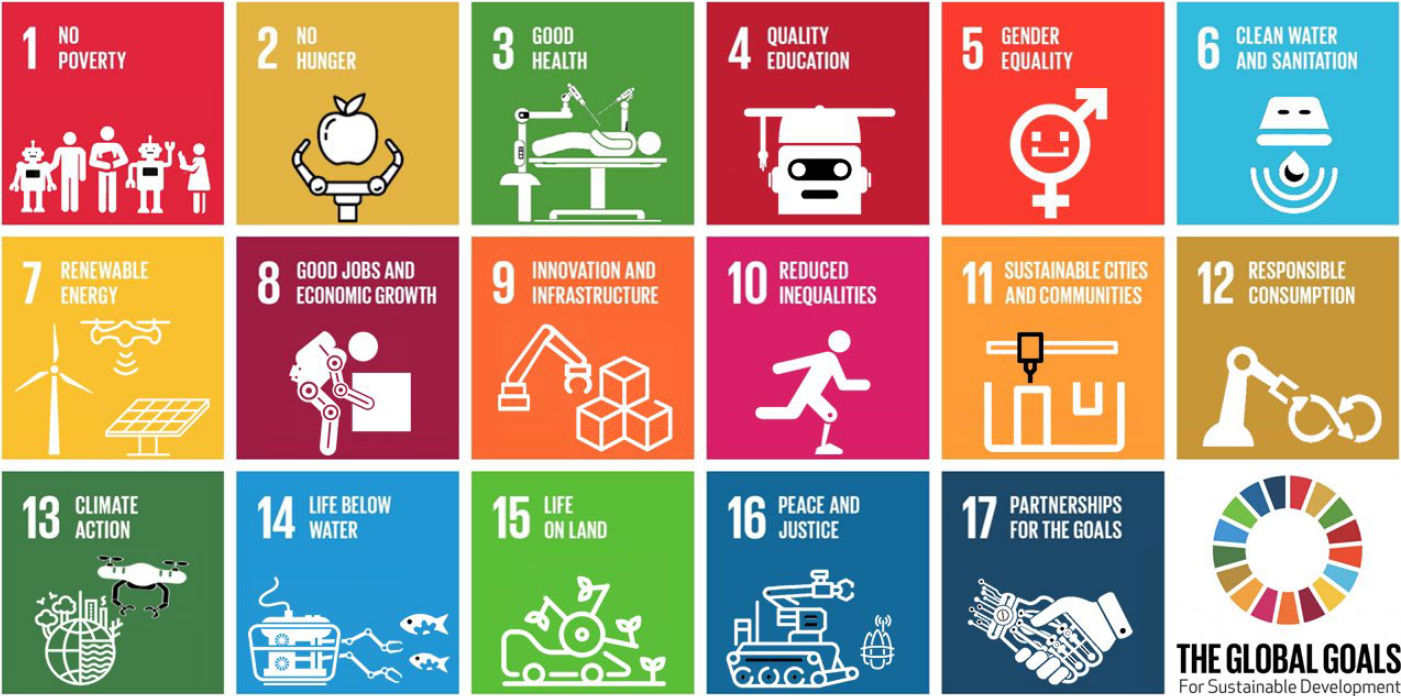About Our Initiative
In 2015, 193 countries agreed on the United Nations Sustainable Development Goals (SDGs). They are a framework of recommendations and principles to achieve a better and more sustainable future for all. After the Millennium Development Goals (MDGs), they address the global challenges, such as poverty, inequality, climate, environmental degradation, prosperity, peace and justice. To achieve these standards, member states will rely on the development of new technologies, such as robotics. The ever-increasing importance of robots could have a significant impact on our society in the coming years, as highlighted during the COVID crisis. Robots will also have a role within international strategies (e.g. the Great Reset initiative of the World Economic Forum) to shape the recovery and to rebuild society and the economy in a more sustainable manner. However, Robotics also comes with major systemic, environmental, and social challenges.

Robots as Enablers
Robots offer a wide range of tools to enable the SDGs. By using drones for search and rescue missions in case of natural disasters, or by delivering food in war zones with self-driving trucks, robots could reduce the impact of such catastrophes. Robots can be used to monitor environmental changes in air, land and water, and may allow a better understanding and preservation of ecosystems. Precision agriculture can increase productivity and reduce waste of food, thus helping to provide food security. Similarly, robots will increase the overall productivity in many industries by automating tedious tasks, thus reducing the price of goods and the risk of work-related injuries. They could improve access to transportation and healthcare and improve the quality of life of people living with disabilities.
Robots as Inhibitors
Robots can also inhibit this progress. Robotization of industries will cause job losses. This will primarily affect workers with low education and countries who do not have the means to invest in such technology or to educate a workforce able to benefit from this process. Similar inequalities can be seen in the use of robots in agriculture, which can prevent small farmers from competing with multinationals, thus enhancing urban exodus and threatening food sovereignty. Robots are also often made of rare-earth materials and produce e-waste, which causes an inherent danger to the environment if not dealt with properly. They may also ease the feasibility of projects which may have damaging consequences on the ecosystems, or delay structural changes needed to address global warming (e.g. with the rise of individual autonomous cars).
Meet Our Team

Prof. Bhavani Rao R.

Prof. Tamas Haidegger
Obuda University, Hungary

Prof. Alaa Khamis
Personal Website

Prof. An Jacobs
Personal Website

Dr. Carl-Maria Mörch
Université Libre de Bruxelles, Belgium

Vincent Mai
Researcher, Algora Lab, Université de Montréal, Canada

Luca Lach
Neuroinformatics Group, Bielefeld University

